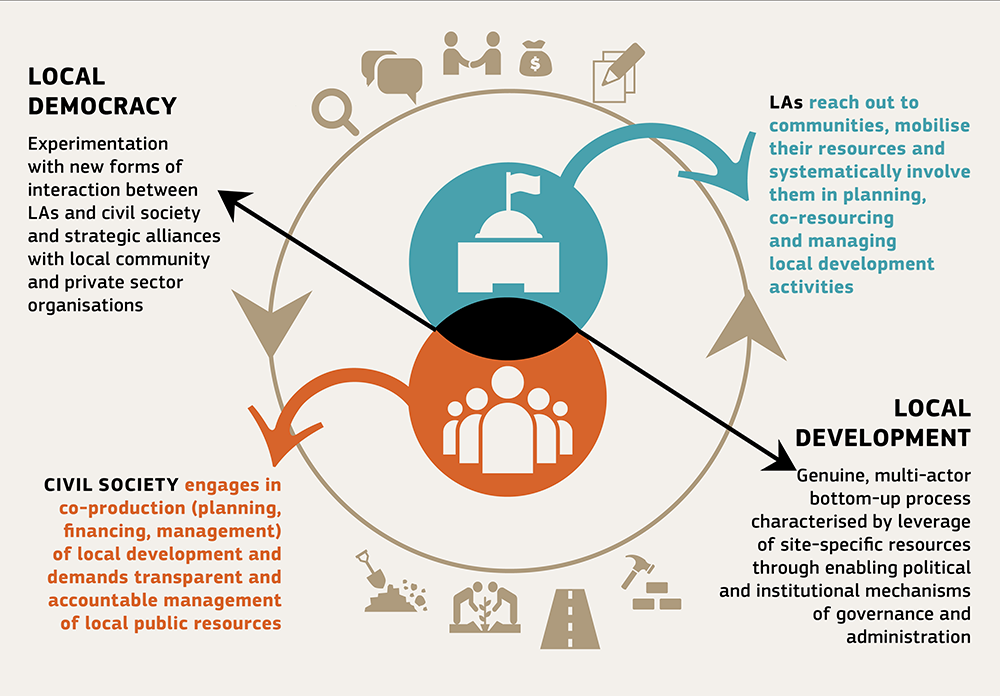2.4 Rethinking local governance and local democracy
For decentralisation processes to yield development outcomes (with LAs effectively operating as catalyst of local/territorial development), it is not sufficient to work to improve the supply side of governance — i.e. by empowering LAs. There is just as much need to strengthen the demand side of governance as well, which is what local democracy allows for.
Two key parameters for ensuring that LAs can effectively operate as catalyst of local / territorial development |
||||||
Local governanceis about the way power and authority are exercised at the local level and built on two axes: |
Local democracyrequires to foster more constructive state-society relations, it is based on two premises: |
|||||
|
Responsive and accountable LAs |
Active citizens, CSOs and private sector actors |
Leaders have the power to respond to citizens’ needs and aspirations |
Citizens have the means to hold them accountable so as to ensure that responsiveness. |
|||
Local governance requires a set of local institutions to engage citizens in public affairs (e.g. mechanisms for participatory policymaking, planning and budgeting), to enable LAs to perform as facilitators of networks of service providers (e.g. public-private sector partnerships) and to ensure accountability to citizens.
From this interactions between civil society and local authorities, two outcomes can be expected: local democracy and local development.

|
To go further... read this
|
|
To go further... watch this
|
